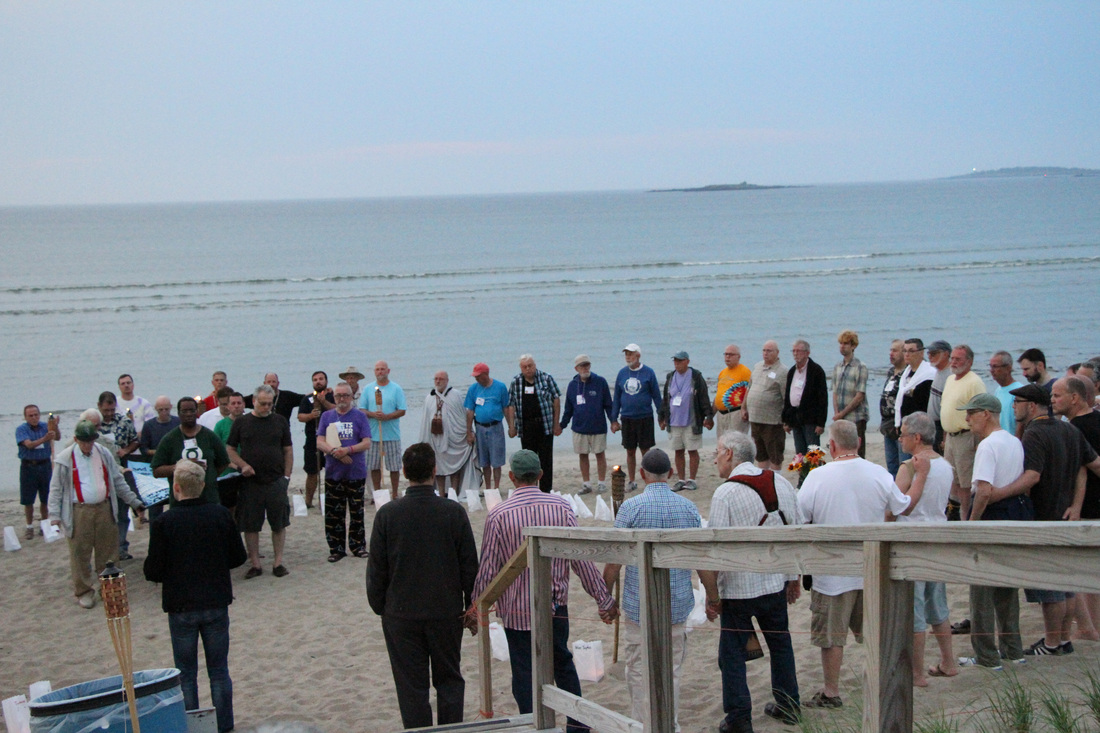

In the stair-step line of children in the
Polaroid, the fourth boy in line, probably not much more than six years old
wears a red suit coat jacket and short pants. The three other boys, ahead of he
and I in the line, are wearing brown or black jackets. All the girls are
wearing dresses. We are in my grandma’s back yard, a dozen cousins lined up
with big smiles, our parents just off camera.
The boy in the red jacket was my cousin Brian. A few years younger than I,
Brian loved to play hide and seek with the girls at Nanna’s house. In college,
when I came out to my family, Brian sent me a note of solidarity and still
later, his own coming out letter. He was beautiful. At a lean six foot
with deep brown smiling eyes and dark brown hair, he turned many heads.
He went to college in Massachusetts in theater and toured with a New York
company for a few years. When he got sick he was living in D.C. His death left
a hole in our family.
Tonight I listen to the men on the beach at the GAYLA conference recite the
names of the men who had come to this conference many years ago and lost their
lives, many to AIDS. In those days young men received their diagnosis and died
within the same year, or two, like Brian.
Brian and I carved the unwelcome rainbow into our large extended Irish Catholic
family. A drum beat processes the men to the beach from the hemlocks
where they gather. There are seventy-five or so men of all ages, some now bent
with age, younger men who came out long after people started living with AIDS,
and many others.
In this ritual we bear witness to the men we knew who have made their
transition, some who were born princesses, some who only later knew who they
were, some who struggled all of their lives to be accepted. We are all there,
on the beach, feeling the wind in our hair and listening to the cadence of the
low tide, remembering.

